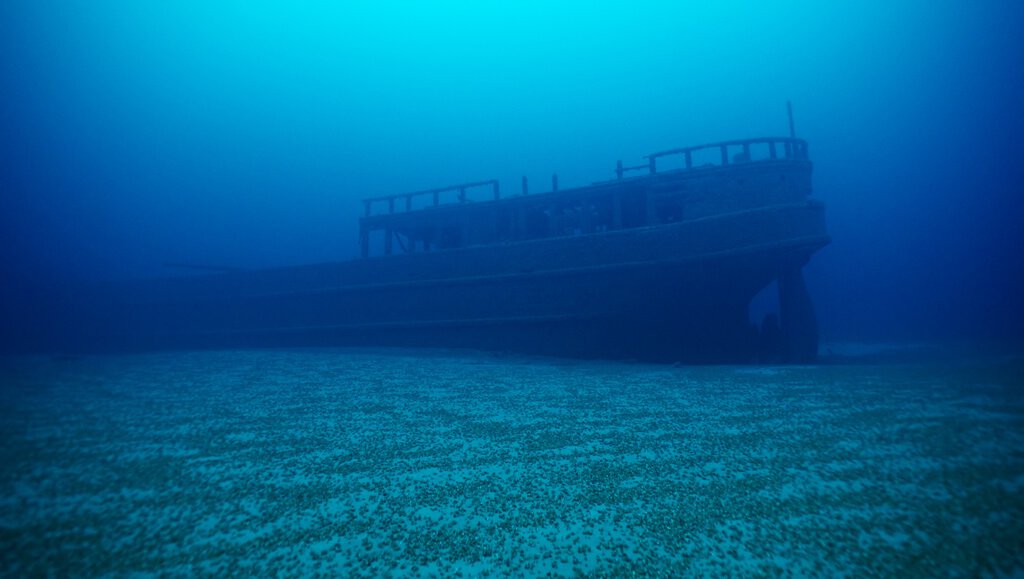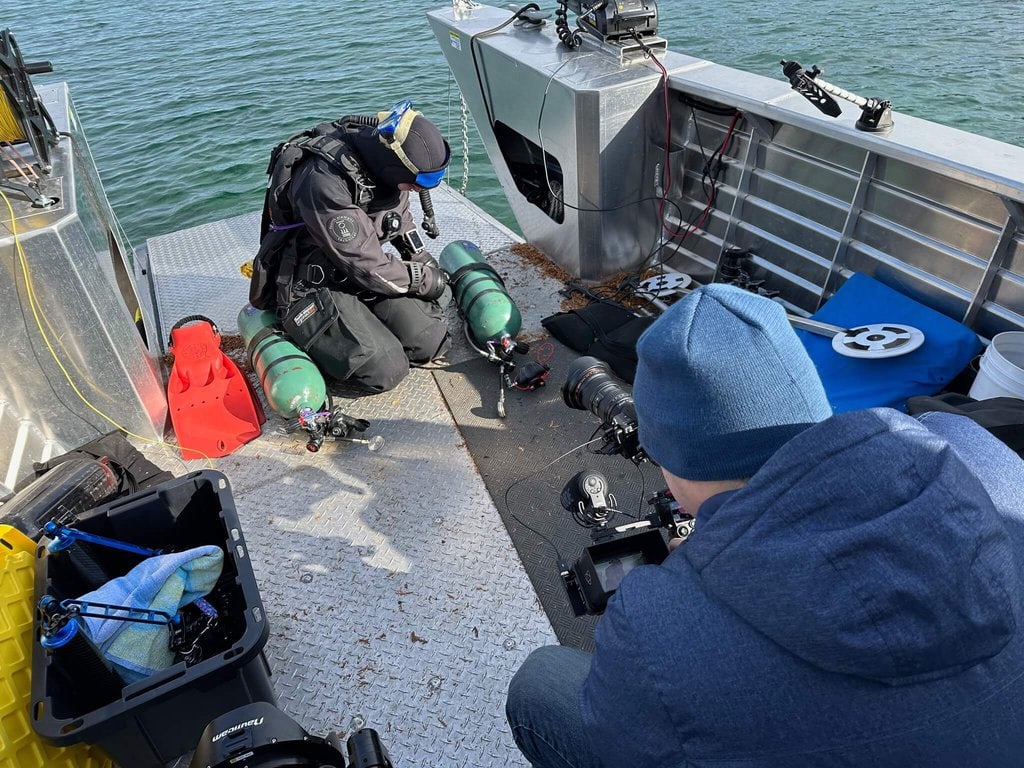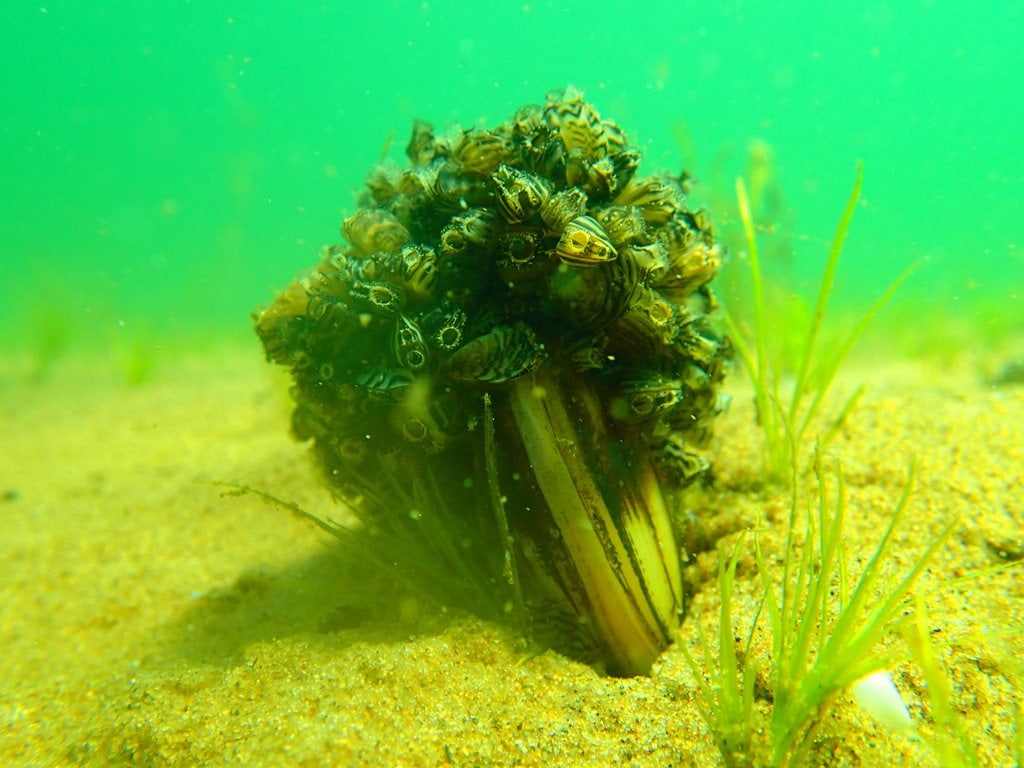
Yvonne Drebert and Zach Melnick were making their documentary about the invasive quagga mussels in the Great Lakes when they found an old shipwreck: of the cargo steamship called the Africa, which vanished while sailing on Lake Huron in 1895, some 128 years ago. The ship’s whereabouts were a mystery until this year when the duo made their astonishing discovery. Here’s the story.
A 128-Year-Old Shipwreck
Drebert and Melnick were accompanied by their friends on a boating expedition in June. They were doing research for their upcoming film, All Too Clear, when an unusual formation on the lake floor led them to an intriguing underwater site off the west coast of Lake Huron’s Saugeen Peninsula in Ontario, Canada.

The team explored the shipwreck with a remotely operated underwater vehicle, and its camera showed a vessel concealed beneath layers of quagga mussels on the lakebed 280 feet below. Identifying the shipwreck was a challenge due to a dense covering of mussels. After asking maritime historian Patrick Folkes and marine archaeologist Scarlett Janusasm and securing an archaeological license from Ontario, the group returned to the shipwreck for a more thorough investigation!
The Africa Sunk in a Storm
The wreck was identified to be that of Africa, which measured 148 feet in length, 26 feet in width, and 12.5 feet in height. Coal was also discovered nearby, further confirming the ship based on its cargo during its final and fateful voyage.
As the story goes bad snowstorm engulfed Africa near the Saugeen Peninsula. In the big waves, the ship disappeared into the water, along with all 11 crew members.

Funnily enough, the invasive quagga mussel—the subject of Drebert and Melnick’s documentary All Too Clear—played a major role in locating the shipwreck. They act as natural water filters, which made the water clear enough to reveal the mound of the shipwreck.
Interestingly, the unchecked proliferation of this shipwreck-finding species is a big threat to the Great Lakes shipwrecks because the acid the mussels produce corrodes steel and iron ships. Beyond the damage to historical artifacts, quagga mussels and their invasive counterpart, zebra mussels, have wreaked ecological havoc in the Great Lakes for some time.
They outcompete and eliminate native mussels, displace indigenous arthropods, and contribute to the spread of avian botulism, resulting in bird fatalities. But, we wouldn’t have found Africa without them.